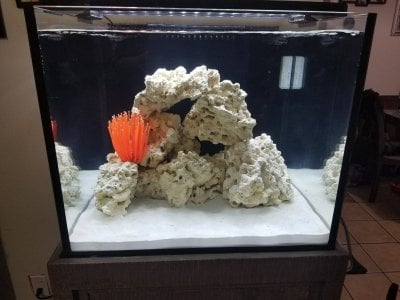- Joined
- Nov 24, 2018
- Messages
- 1,810
- Reaction score
- 3,611
What is your motivation for setting up a fish only tank using LR?
Starting simple. I enjoy fish, I used to have African cichlids with a similar setup. One day I plan to slowly add coral but this is still a maybe. For now all I care about is watching the fish.





















